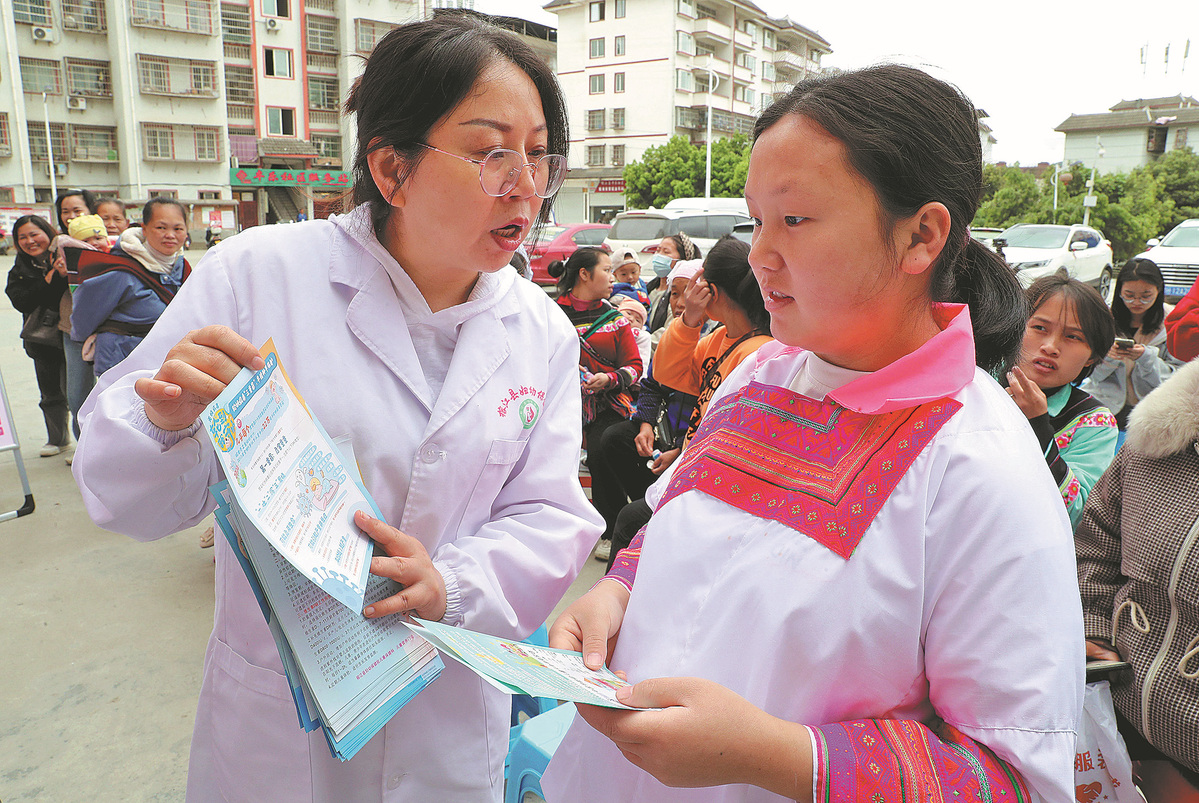Fertility experts examine reasons for falling births
Health challenges, lack of knowledge lead to declining number of pregnancies


Relieving pain
Many medical experts in Anqing pointed to the disparities between big cities, smaller towns and rural areas when it comes to childbirth-related resources and public awareness, which deserves far greater attention and input.
For many women, their concerns about childbearing are not only related to a lack of support from their spouse and family, but also to labor and potential birth defects of infants.
Dong Jinchun, an associate chief physician at Anqing Municipal Hospital's anesthesiology department, is a keen advocate of analgesics to diminish labor pain.
Only 20 to 30 percent of women who give birth vaginally in his hospital have an analgesic during labor, lagging way behind richer cities and municipalities such as Shanghai and Chongqing, Dong said. In many European and North American countries the number is above 80 percent.
He noted that analgesics relieve pain without loss of feeling or muscle movement, yet "public awareness of science in this regard is far from enough".
"In cases where the pain of vaginal delivery is severe, the young mother's family members also have to agree as long as (the mother) herself has agreed to receive an analgesic during labor," he said.
He said he had found that younger first-time mothers are more likely to receive a labor analgesic."Most of the time, giving birth to the first child is more painful than for the second child," he said.
Jiang, the head nurse, said China also needs to urgently improve education on childbirth, "especially in third- and fourth-tier cities, where there are a lack of childbearing and parenting classes."
"Nowadays, it is a prominent problem that some smaller cities have trouble setting up workshops for pregnant women and midwife clinics," she added.
Jiang said for a small family it is essential to be on the same page when it comes to understanding appropriate knowledge rather than "superficial details".

























